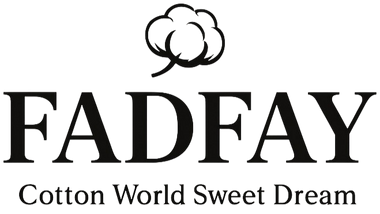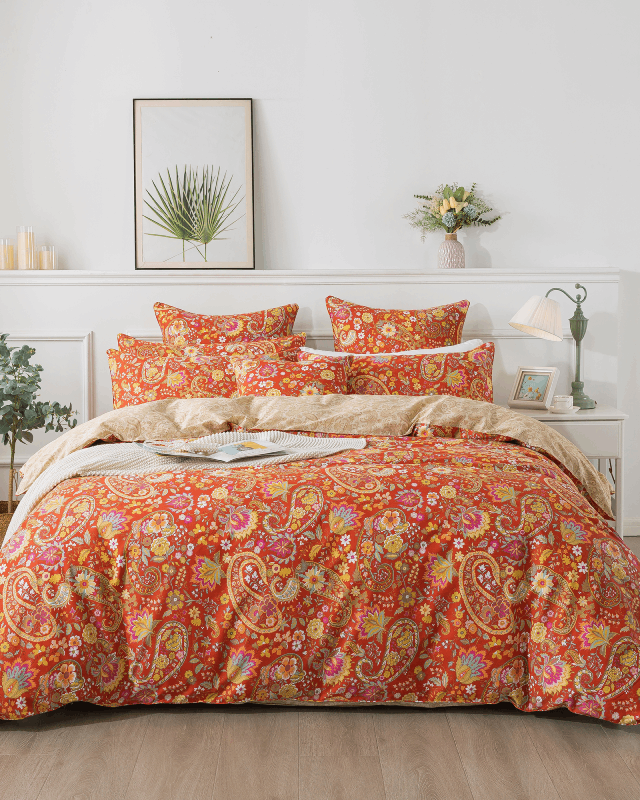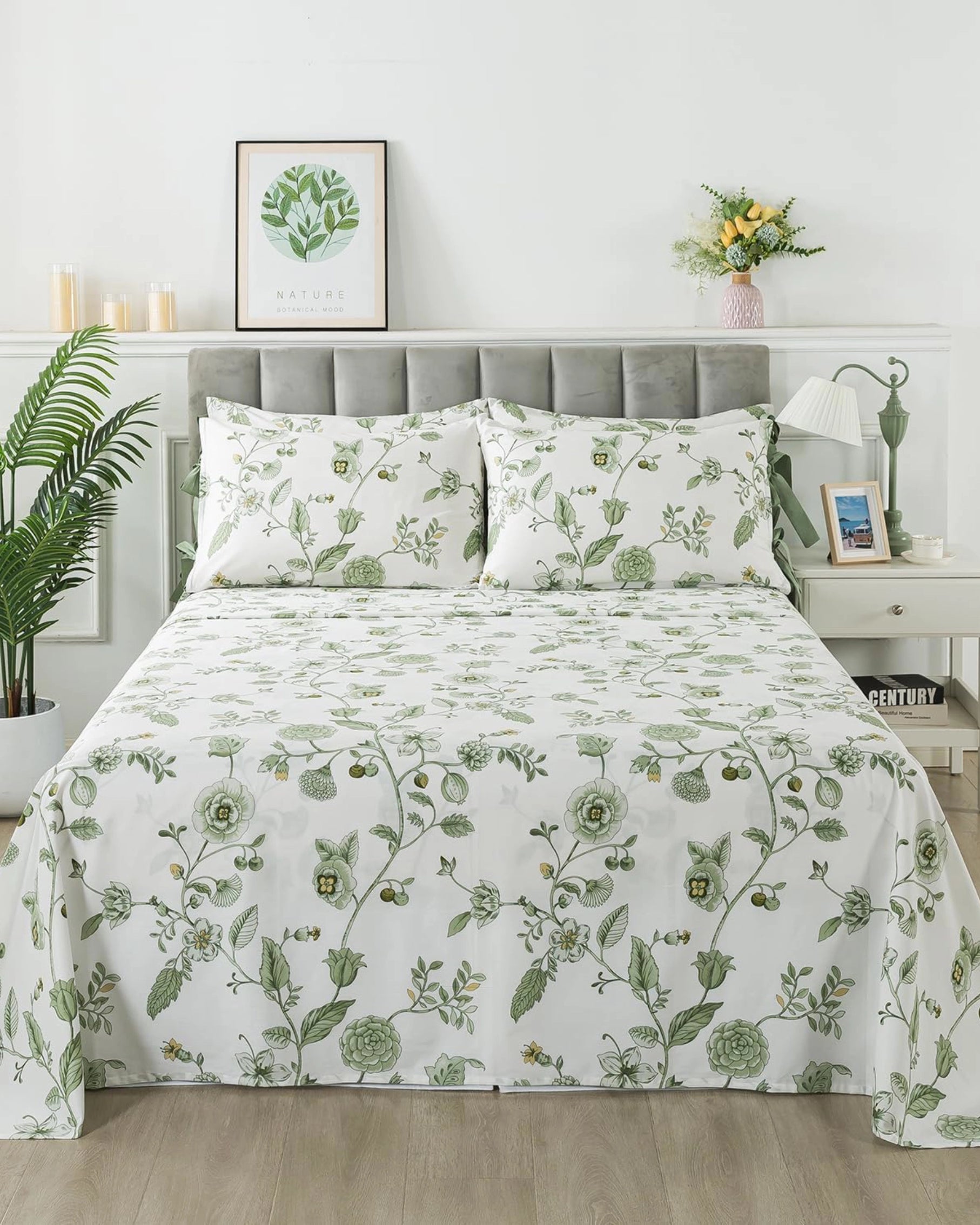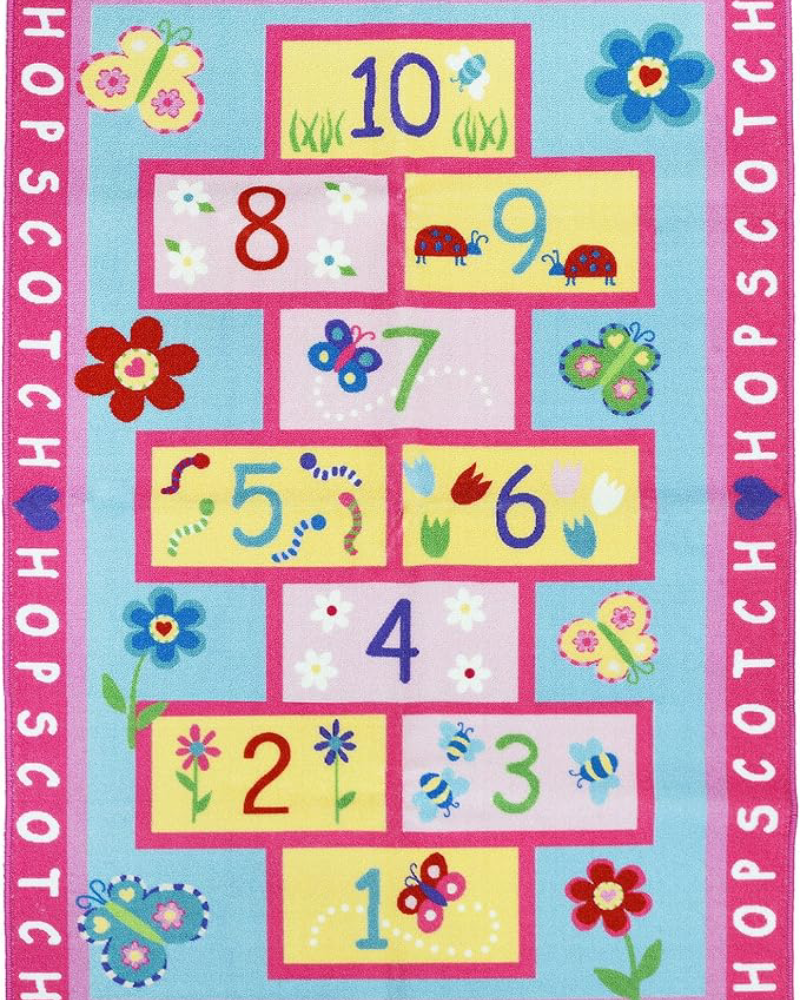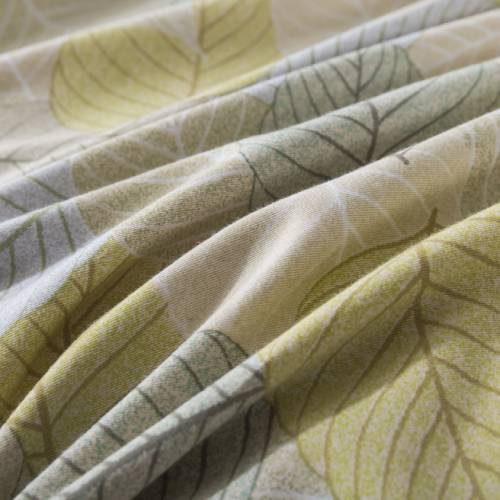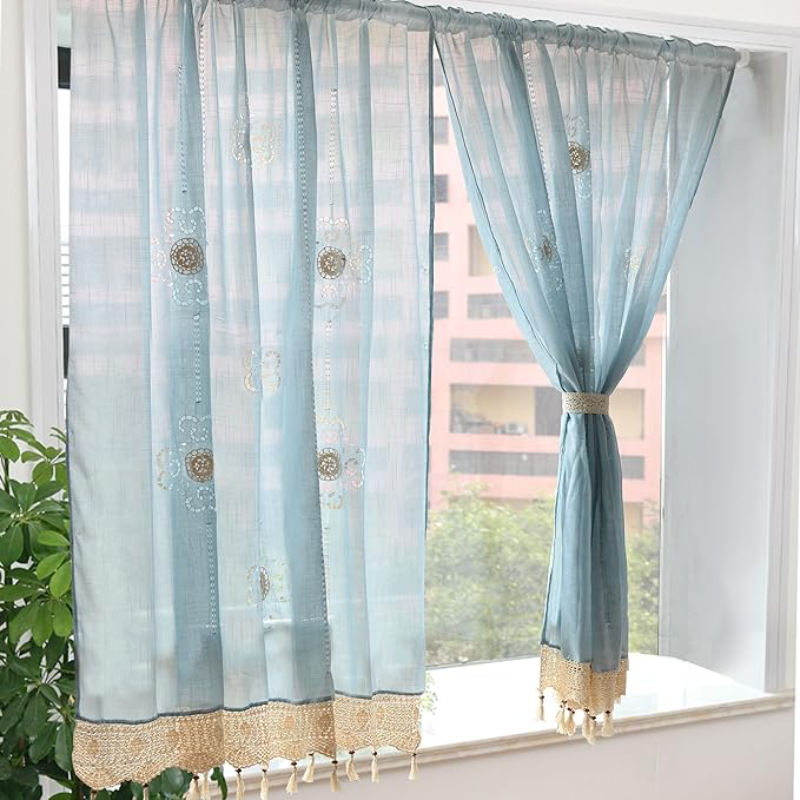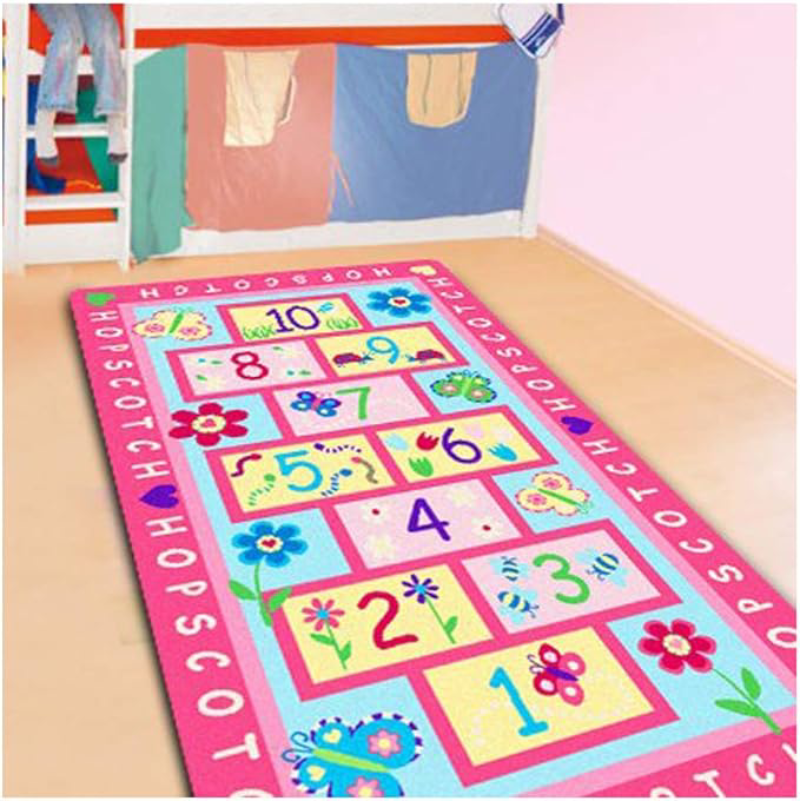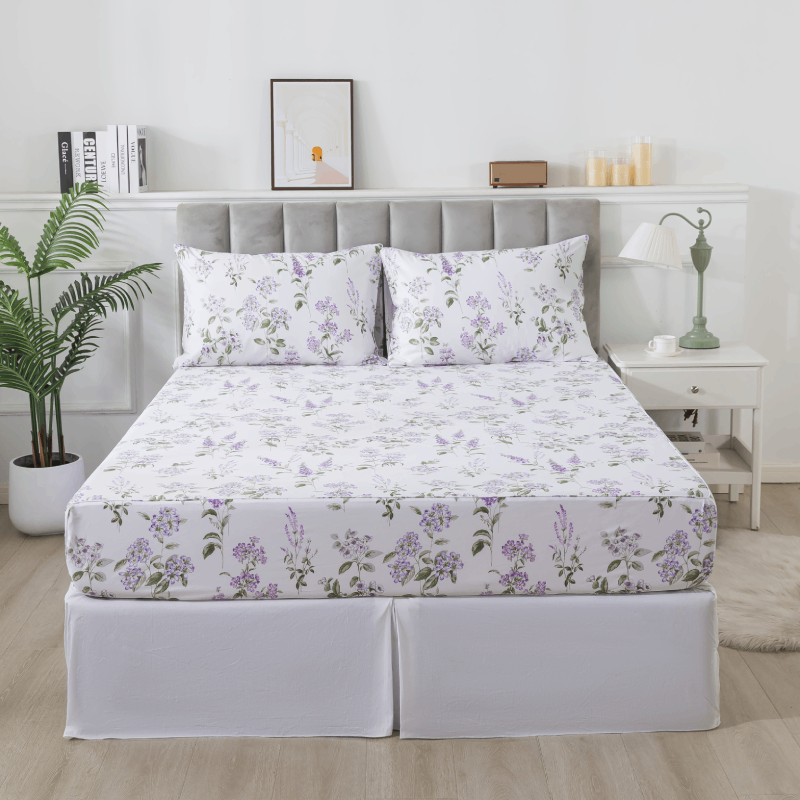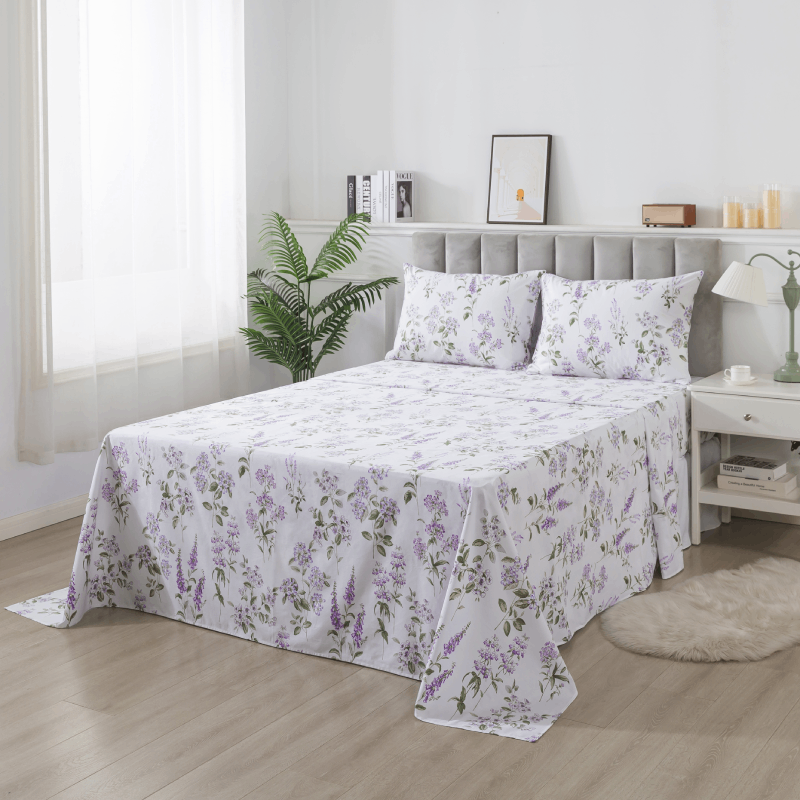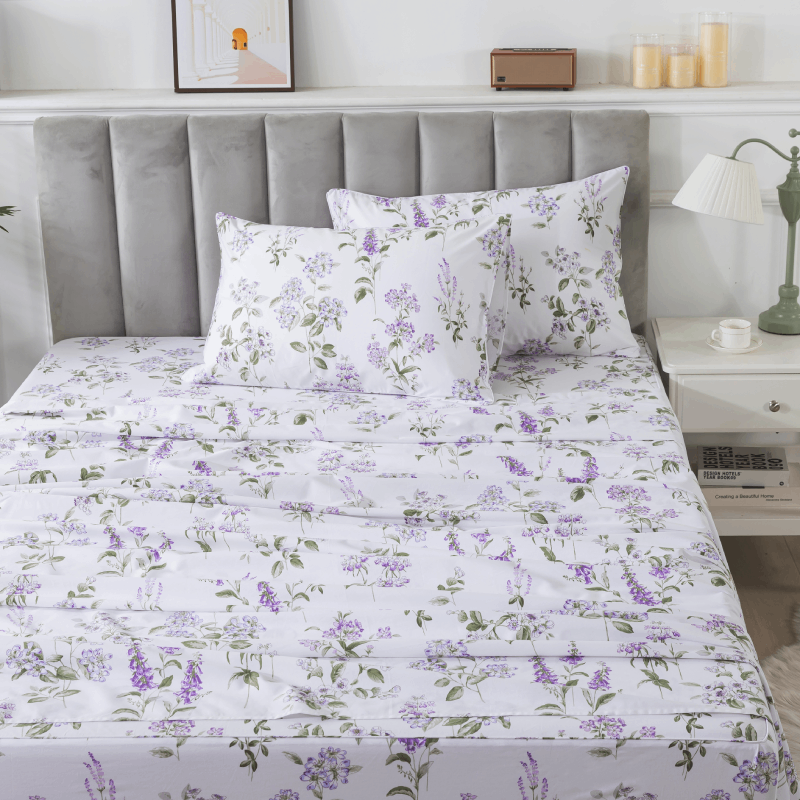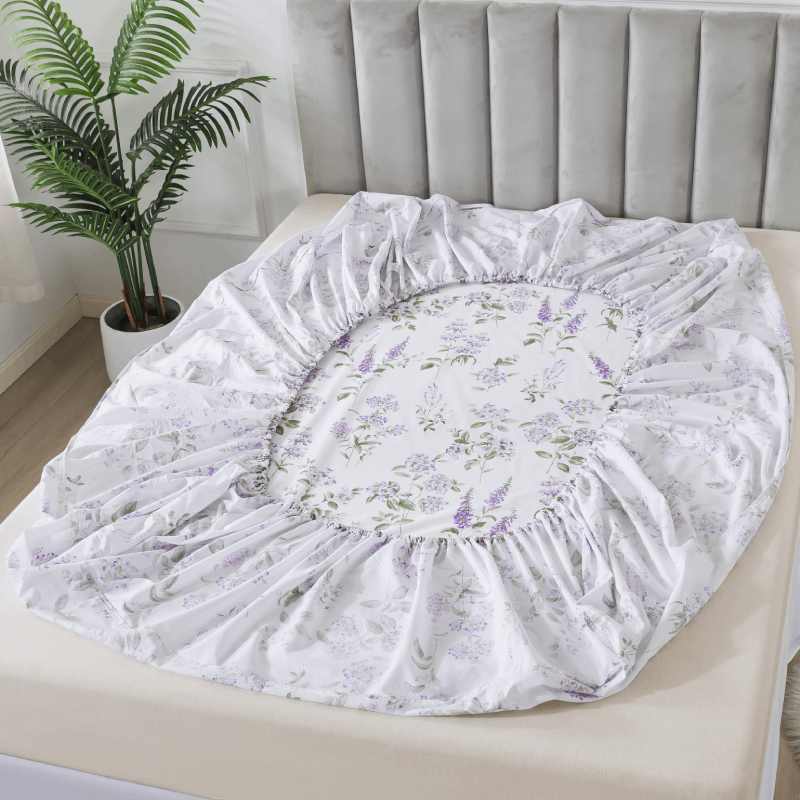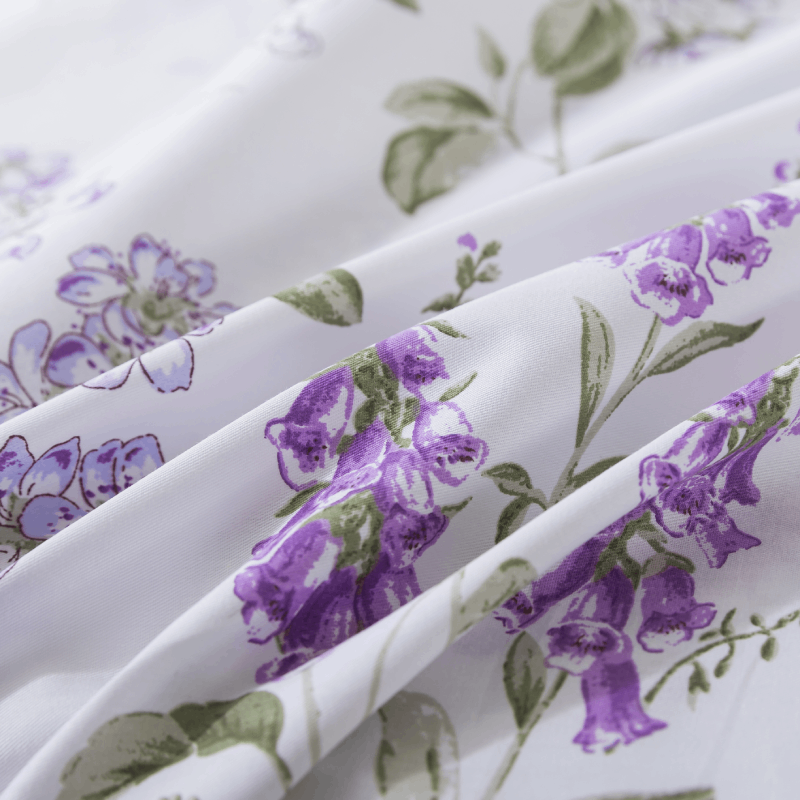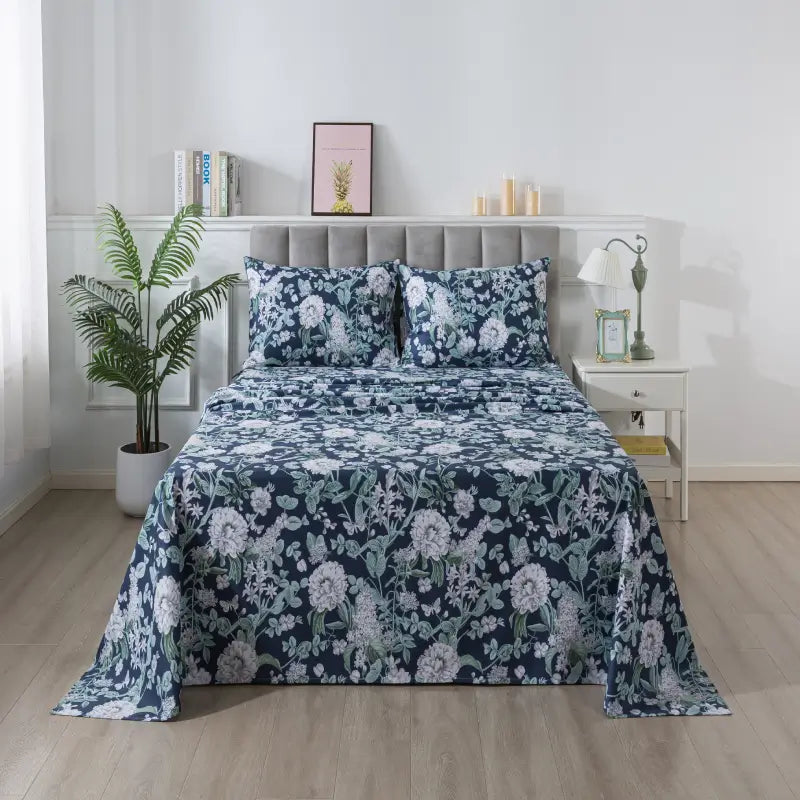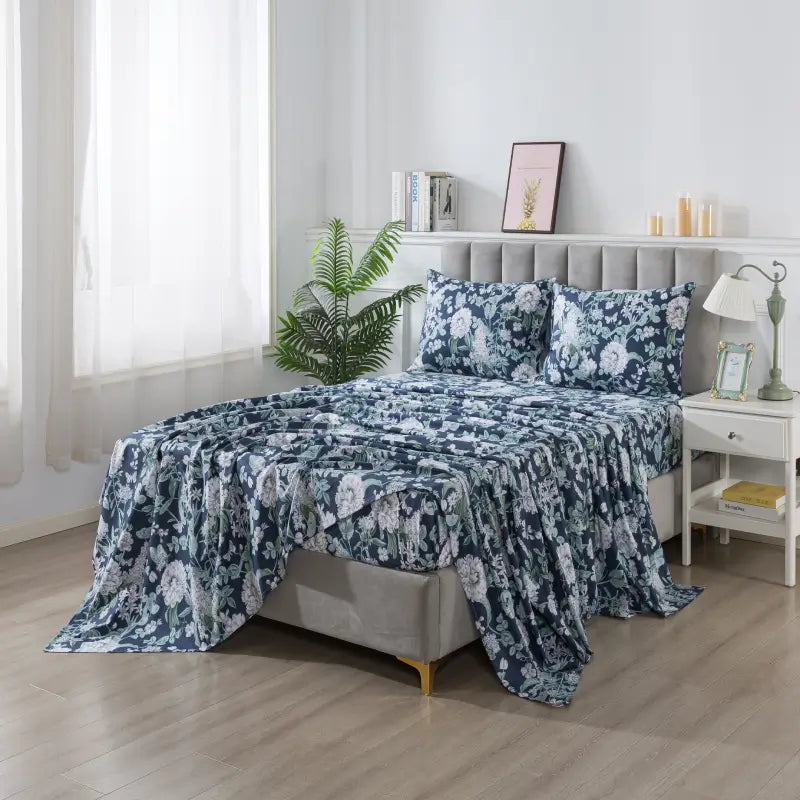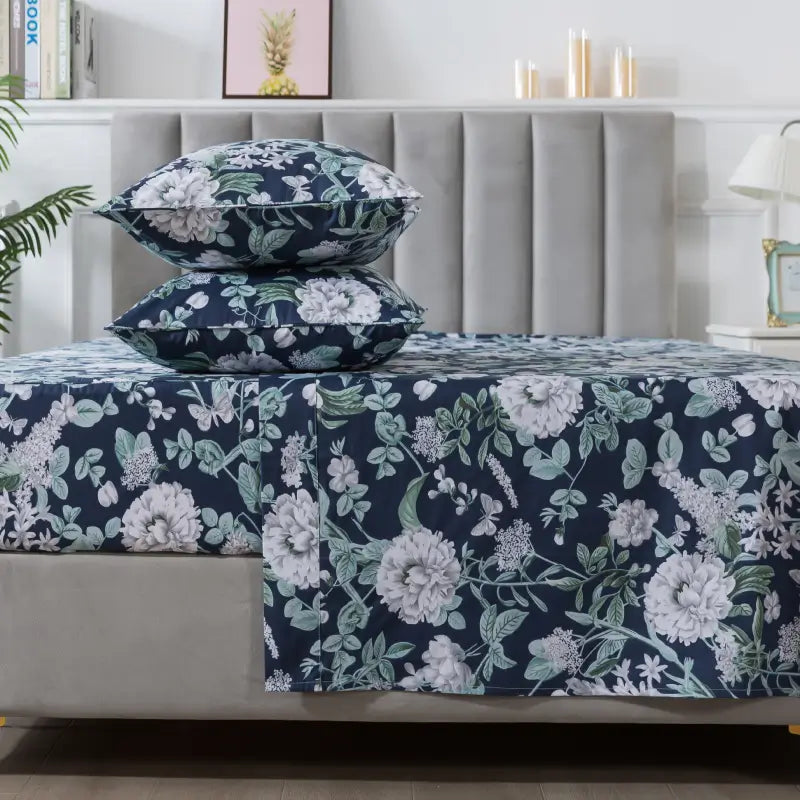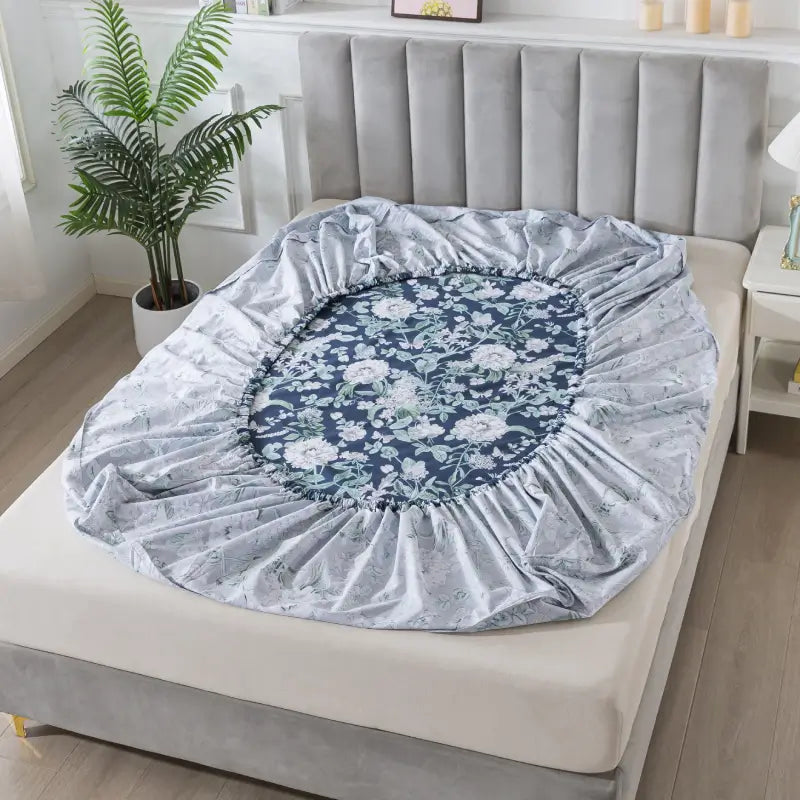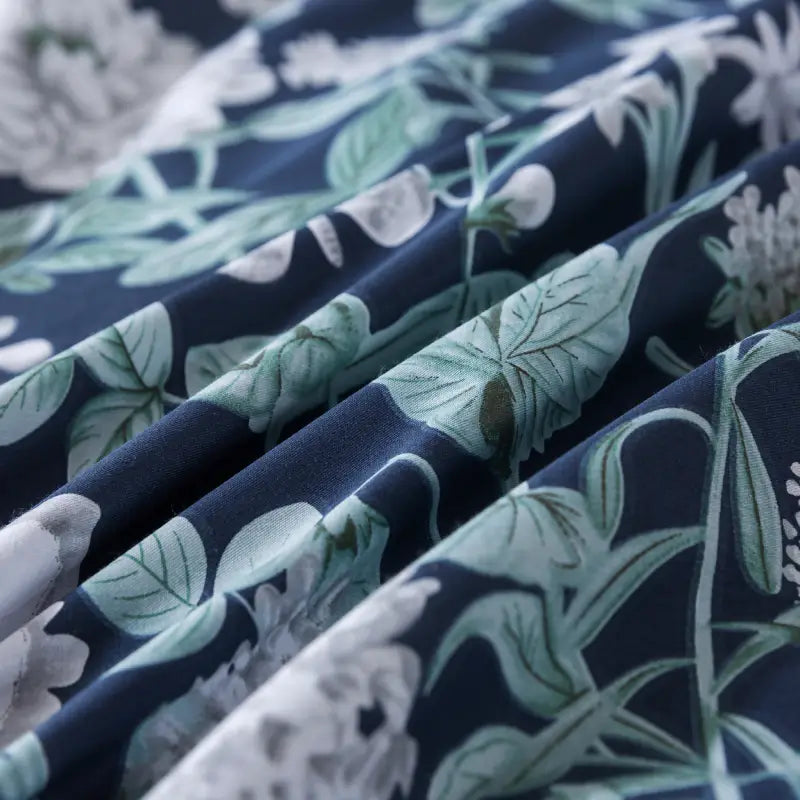Understanding 100% Cotton: 100% cotton fabric is made entirely from natural cotton fibers, which are known for their softness, breathability, and durability. Unlike blended fabrics that combine cotton with synthetic materials like polyester, 100% cotton sheets offer a pure experience of cotton’s natural qualities. The absence of synthetic fibers ensures that the fabric retains all the benefits of cotton, making it a popular choice for bedding. Cotton fibers are soft, comfortable, and absorbent, which makes them ideal for a good night's sleep.
Types of Cotton Used in Sheets:
Egyptian Cotton: Egyptian cotton is often considered the gold standard for luxury bedding. It’s made from long-staple fibers, which produce a finer, softer, and more durable fabric. The long fibers also result in fewer joins in the fabric, giving it a smoother finish and a higher thread count. Egyptian cotton is ideal for those who seek the ultimate in comfort and durability, though it tends to be more expensive. Its unique properties make it resistant to pilling, and it ages gracefully, becoming softer over time.
Pima Cotton: Pima cotton, also known as Supima cotton when grown in the United States, is another high-quality cotton variety. Like Egyptian cotton, it has long fibers, but it’s generally more affordable. Pima cotton is known for its softness and strength, making it a great option for those who want quality without the premium price tag. Its durability is comparable to Egyptian cotton, and it shares the same luxurious feel, though it may not be as readily available.
Upland Cotton: Upland cotton is the most commonly used type of cotton in the world. It has shorter fibers compared to Egyptian and Pima cotton, which can make the fabric less soft and durable. However, it’s also more affordable, making it a popular choice for everyday bedding. Upland cotton sheets are often found in a range of thread counts and are valued for their breathability and practicality.
Benefits of 100% Cotton Sheets:
Breathability: One of the standout features of 100% cotton sheets is their breathability. Cotton naturally allows air to flow through the fabric, which helps regulate body temperature during sleep. This makes cotton sheets ideal for warm climates or for those who tend to sleep hot. The breathability also means that cotton sheets can wick moisture away from the body, helping to keep you dry and comfortable throughout the night. This property is especially beneficial in humid environments where moisture control is important.
Softness: Cotton sheets are known for their softness, which only improves with each wash. This is because the natural fibers in cotton break down slightly over time, making the fabric softer and more comfortable. The level of softness can vary depending on the type of cotton used and the thread count of the sheets. High-quality cotton sheets, especially those with a higher thread count, offer a luxurious feel that enhances the sleeping experience.
Durability: 100% cotton sheets are generally very durable, especially when made from long-staple cotton like Egyptian or Pima cotton. These sheets can withstand frequent washing and still maintain their quality over time. Additionally, cotton sheets tend to pill less than synthetic blends, which adds to their longevity. Properly cared for, cotton sheets can last for years, making them a worthwhile investment. Their durability also means that they can handle the wear and tear of daily use without losing their comfort.
Hypoallergenic: Cotton is a natural fiber that is less likely to cause allergic reactions compared to synthetic materials. This makes 100% cotton sheets a good choice for people with sensitive skin or allergies. Cotton sheets can also be easily washed at high temperatures, which helps eliminate dust mites and other allergens. For those who suffer from allergies, cotton’s hypoallergenic properties provide a safer and more comfortable sleeping environment.
Sustainability: Cotton is a renewable resource, and when grown and harvested responsibly, it can be a more sustainable option compared to synthetic fabrics. Organic cotton, in particular, is grown without the use of harmful pesticides or chemicals, making it better for the environment and your health. Choosing organic cotton sheets is a great way to enjoy the benefits of cotton while also supporting sustainable practices. The environmental impact of organic cotton is significantly lower than that of conventional cotton, contributing to a healthier planet
Considerations When Choosing Cotton Sheets:
Thread Count: Thread count refers to the number of threads woven into one square inch of fabric. While a higher thread count often indicates a softer and more durable sheet, it’s not the only factor to consider. For example, a lower thread count made from high-quality cotton, like Egyptian or Pima, can be just as luxurious as a higher thread count made from lower-quality cotton. Generally, a thread count between 200 and 400 is considered good for cotton sheets. Sheets with a higher thread count can feel denser and smoother, but they may also be less breathable.
Weave: The weave of the fabric also affects the feel and durability of the sheets. The two most common weaves for cotton sheets are percale and sateen. Percale is a plain weave that produces a crisp, cool fabric, making it a good choice for those who prefer a lightweight, breathable sheet. Sateen, on the other hand, is a satin weave that gives the fabric a smooth, silky feel. It’s often chosen for its luxurious texture, but it may not be as breathable as percale. The choice between percale and sateen often comes down to personal preference, with some people favoring the coolness of percale and others the warmth of sateen.
Care and Maintenance: 100% cotton sheets are relatively easy to care for, but they do require some attention to maintain their quality. It’s important to wash cotton sheets in cool or warm water and avoid high heat when drying, as this can cause shrinkage. Ironing may be necessary to remove wrinkles, especially for percale sheets. Over time, cotton sheets will continue to soften, but proper care can help to extend their lifespan. Regular washing not only keeps the sheets clean but also helps maintain their softness and comfort.
Comparing Cotton to Other Fabrics:
Polyester and Blends: Polyester and cotton-polyester blends are popular alternatives to 100% cotton sheets. These materials are typically less expensive and more wrinkle-resistant, but they don’t offer the same level of breathability or softness. Polyester can trap heat, making it less comfortable for warm sleepers, and it’s not as durable as cotton. Blends combine the best of both worlds, offering some of the softness and breathability of cotton with the durability and wrinkle-resistance of polyester. However, they still don’t match the pure comfort of 100% cotton. The blend's performance often depends on the percentage of cotton versus polyester, with higher cotton content typically providing better comfort.
Linen: Linen is another natural fabric that is often compared to cotton. It’s known for its exceptional breathability and moisture-wicking properties, making it ideal for hot climates. However, linen has a rougher texture compared to cotton and can be prone to wrinkling. It’s also more expensive, which may be a consideration for some buyers. Linen sheets are valued for their unique texture and durability, but they require more care to maintain their appearance and feel. Over time, linen can soften, but it will always have a distinct feel compared to cotton.
Bamboo: Bamboo sheets have gained popularity in recent years due to their softness and eco-friendliness. Bamboo is naturally hypoallergenic and moisture-wicking, similar to cotton. However, bamboo sheets can be more delicate and require special care to maintain their quality. They’re also generally more expensive than cotton sheets. Bamboo sheets are praised for their silky feel and environmental benefits, but they may not be as durable as high-quality cotton sheets. The choice between bamboo and cotton often comes down to personal preference, with bamboo offering a more luxurious, silky feel and cotton providing a more traditional, breathable comfort.
